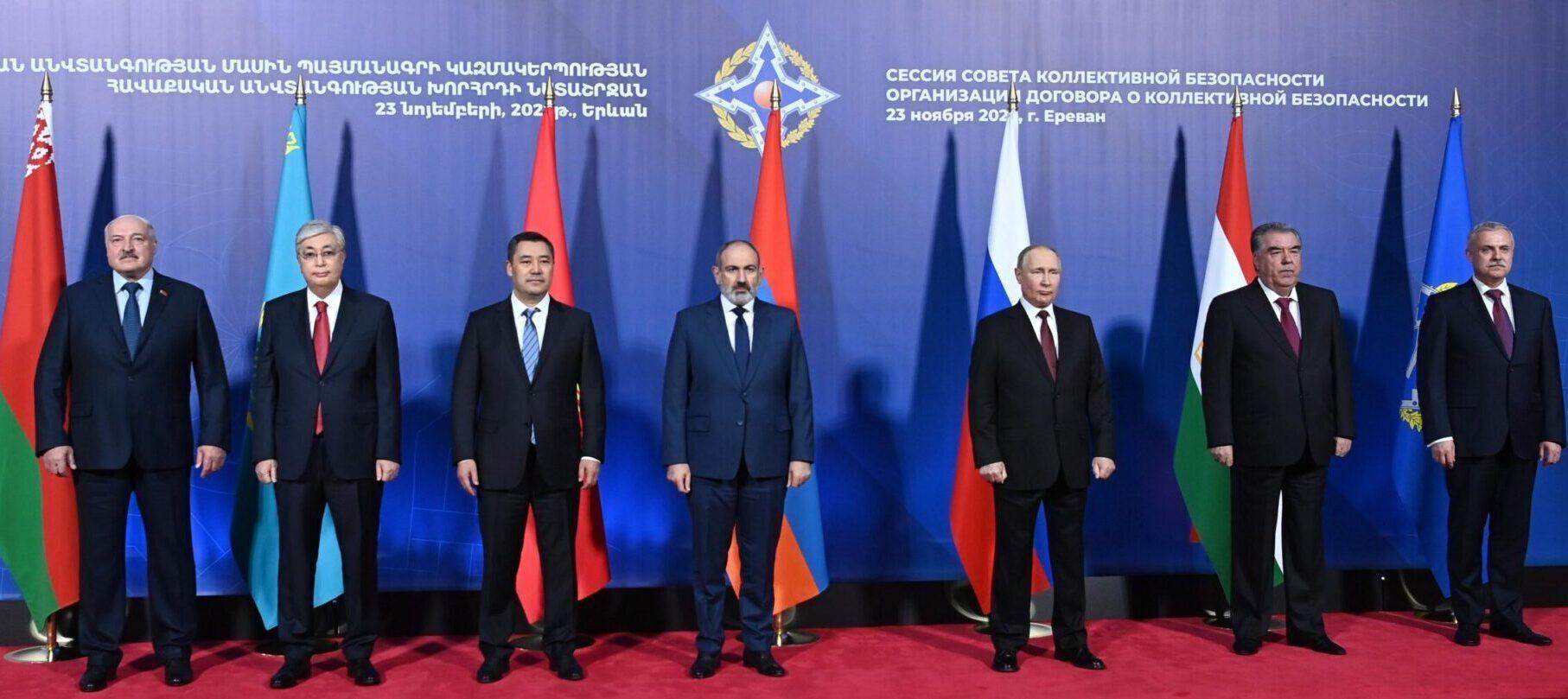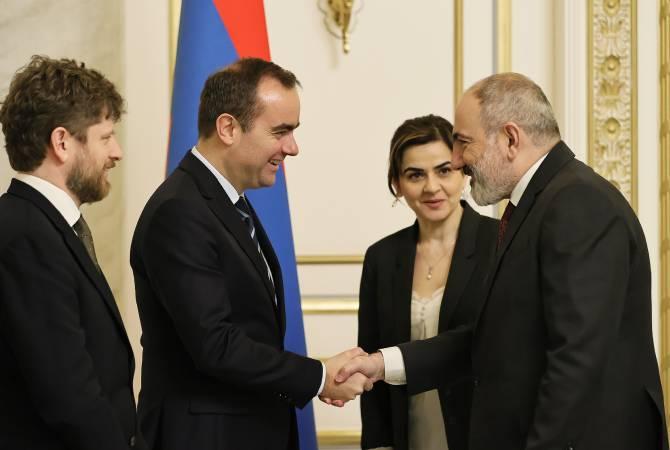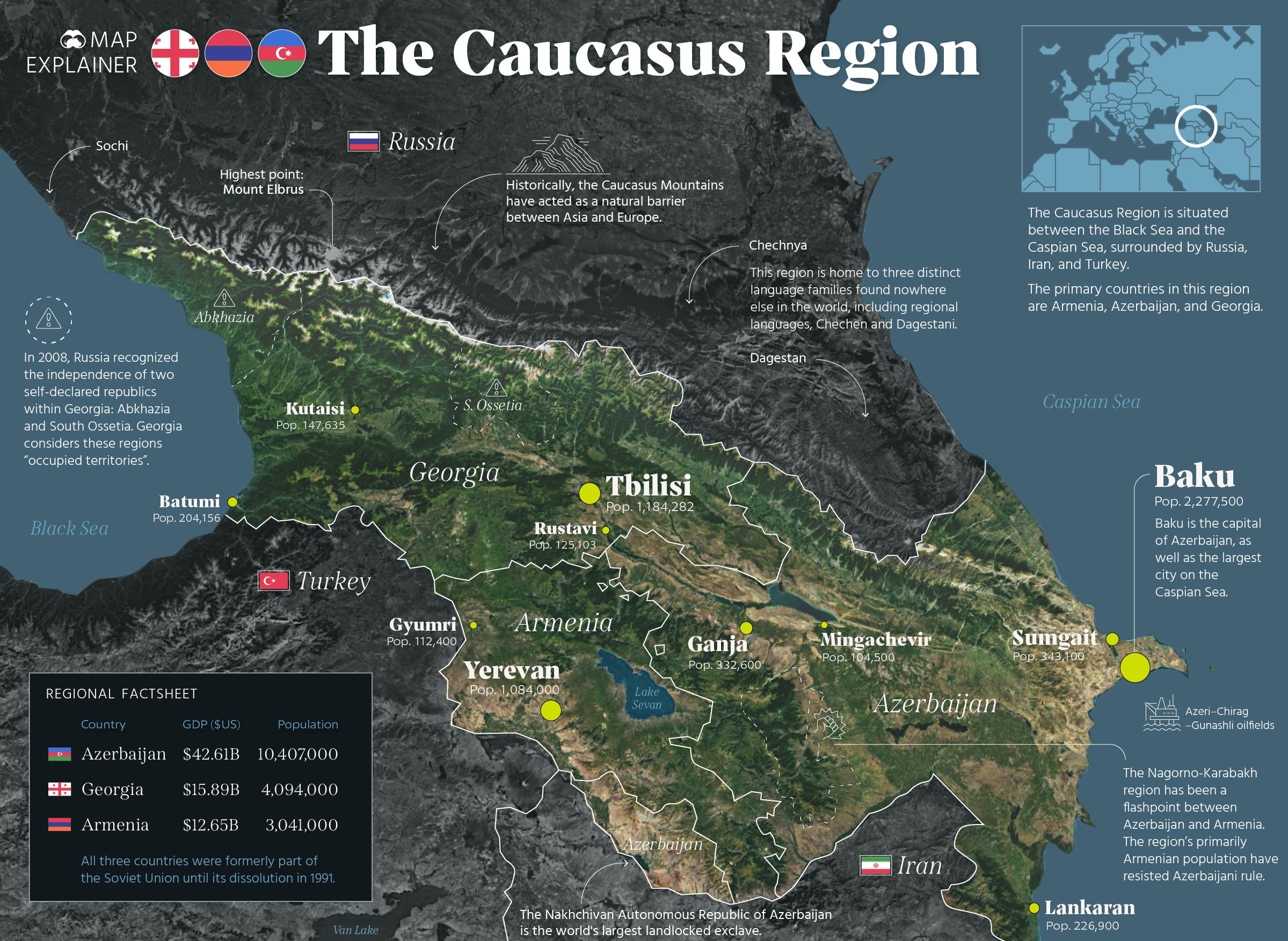Armenia's strategic shift towards West rattles Moscow Reshaping South Caucasus dynamics
Amidst simmering discontent following its defeat in the Second Karabakh War in 2020, Armenia is contemplating a significant strategic shift, with discussions surrounding its potential withdrawal from the Russian-led Collective Security Treaty Organization (CSTO) gaining momentum. The conflict, which resulted in a decisive victory for Azerbaijan, has prompted reevaluation within Armenian official circles regarding the country's alliances and security commitments.
The Second Karabakh War saw Azerbaijan reclaiming its internationally recognized territories in the Karabakh and Eastern Zangazur regions, which had been under Armenian occupation since the early 1990s. Even though the military operations occurred on the Azerbaijani territories, Armenia sought to involve the CSTO in the conflict by using the organization's obligation to defend member states' sovereignty as a justification.
Armenia’s crushing defeat in the war led to widespread disillusionment and calls for seizing its membership in CSTO. In the aftermath of the conflict, some officials in Yerevan have voiced concerns over the efficacy of Armenia's membership in the CSTO, particularly in light of the organization's perceived failure to provide meaningful support during the war.
Prime Minister Nikol Pashinyan announced in an interview with France 24 television on February 22 that Armenia had “frozen” its participation in the CSTO, citing the organization's insufficient support during a crucial period.
Pashinyan highlighted that the CSTO, which is predominantly influenced by Russia, and the underlying treaty, had fallen short in meeting Armenia's needs.
"The Collective Security Treaty has not fulfilled its objectives as far as Armenia is concerned, particularly in 2021 and 2022. And we could not let that happen without taking notice," the premier added.

In response to the speculations regarding a potential "freeze" in Armenia's participation within the CSTO, Kremlin spokesperson Dmitry Peskov clarified that there was no formal mechanism for such action within the security bloc, adding that Yerevan had not officially notified the organization regarding the process of suspending its membership.
Addressing concerns over Armenia's membership status within the CSTO, Peskov emphasized the absence of clarity regarding Armenia's position on withdrawal from the organization.
"Here we have fairly frequent contacts with our Armenian partners. Of course, we will clarify. If we base it on the relevant documents, such a regime [freezing the membership] within the CSTO does not exist. We will communicate, we will clarify," Peskov told journalists.
In the wake of comments hinting at Armenia's potential withdrawal from the CSTO, Russian official, as well as unofficial circles have expressed vehement opposition, warning of dire consequences reminiscent of Ukraine's situation.
Recent remarks by Russian Foreign Minister Sergey Lavrov during the Antalya Diplomatic Forum suggest that clarity may be on the horizon in Armenian-Russian relations, as Moscow seeks definitive answers from Yerevan regarding unresolved matters.
The crux of Lavrov's message was that Russia is closely monitoring statements made by Armenian leadership and will take them into account when formulating its own responses. Essentially, Moscow is warning Yerevan that its perceived obstructive actions may prompt tangible reactions from Russia.
Armenia's expressed desire to withdraw from the CSTO has heightened Russia's concerns, particularly amidst indications that Yerevan seeks to replace Moscow's security umbrella with that of Paris.
Recent exchanges of high-level visits between Armenian and French military officials indicate Yerevan's increasing efforts to bolster its security with the support of France's armed forces.
French Defense Minister Sebastien Lecornu engaged in discussions with Armenian officials in Yerevan on February 23, aimed at enhancing military cooperation between the two nations. The meeting, described as significant by both parties, focused on strengthening defence ties.

Armenia's potential departure from the Russia-dominated security alliance has set alarm bells ringing in Moscow. The prospect of Armenia pivoting towards France for security cooperation has intensified apprehensions within Russian circles.
Tensions between Armenia and Russia have reached new heights following Yerevan's demand for the withdrawal of Russian border guards stationed at Zvartnots Airport. This development has heightened concerns in Moscow and highlighted the deepening friction between the two longtime allies.
Secretary of the Security Council, Armen Grigoryan, affirmed Yerevan's stance that Armenian border troops should be responsible for security operations at Zvartnots International Airport. Grigoryan's statement came amidst growing pressure for the withdrawal of Russian border guards stationed at the airport, signalling a shift in Armenia's security posture and sparking discussions about the country's sovereignty.
Addressing journalists at the National Assembly on March 6, Grigoryan emphasized Armenia's position on the matter, stating that an official letter has been sent to Russia, informing them of Armenia's decision. He reiterated that Armenia possesses the necessary capabilities to ensure security at the airport independently.
Earlier, Russia vehemently criticized Armenia's recent calls for the removal of Russian border guards from Zvartnots Airport, labelling the move as yet another display of "unfriendly behaviour" from Yerevan.
Maria Zakharova, the spokeswoman for the Russian Foreign Ministry, issued a strong rebuke towards Armenia's position following Speaker of the Armenian Parliament, Alen Simonyan's statement, advocating for the removal of Russian border guards stationed at Yerevan's Zvartnots Airport.
Zakharova emphasized that Moscow had not received any official appeals from Armenian authorities regarding the withdrawal of Russian border guards from Zvartnots Airport. She described Armenia's stance on the matter as unfounded and reiterated Russia's commitment to respecting the national legislation of sovereign states.

The Kremlin views the South Caucasus as strategically vital, given its proximity to Russia and its historical ties to the region. Armenia's perceived drift towards the West poses a challenge to Moscow's influence in the area, potentially altering the geopolitical landscape in a region that has traditionally been within Russia's sphere of interest.
Armenia, traditionally seen as a close ally of Russia, has been undergoing a significant reevaluation of its alliances following its defeat in the Second Karabakh War in 2020. Prime Minister Nikol Pashinyan's government has signalled a desire to strengthen ties with Western powers, particularly France, in what Moscow perceives as a strategic pivot away from Russian influence.
The tensions between Yerevan and Moscow come amidst ongoing recalibrations in Armenia's foreign policy, with implications for regional dynamics and Russia's strategic interests. The Kremlin has emphasized its commitment to maintaining influence in the South Caucasus, viewing Armenia's alignment with the West as a challenge to its regional dominance.







